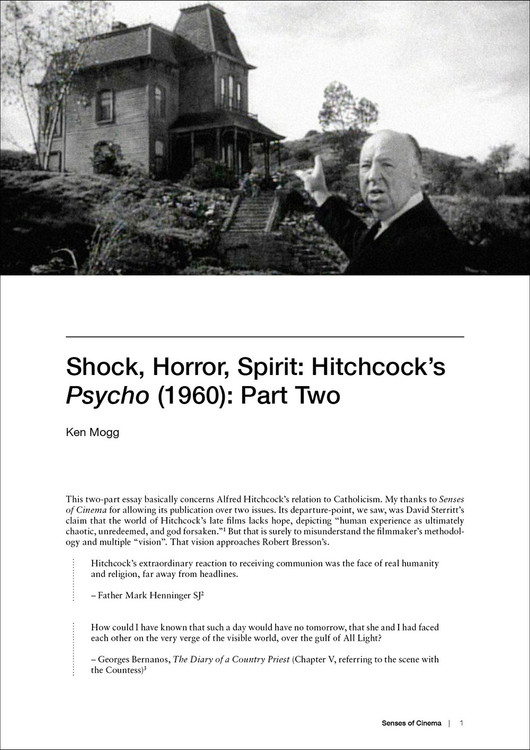Article sample:
The present essay will take inspiration from Pipolo's book and from my attempts to understand Hitchcock's Catholicism. The reader should remember, though, my suggestion that there is no 'single vision' at work in Hitchcock's films, and that despite the director's controlling way with narrative, he ultimately relies on individual viewers to draw their own conclusions. So does Bresson. At the centre of Au Hasard, Balthazar is its titular character, the donkey Balthazar, whom Pipolo reads as a Christ-figure: 'Balthazar reaffirms the otherness and uniqueness of [the suffering] Christ, his mysterious, unattainable perfection.' But the last shot, of the donkey's body, may seem to negate hope of transcendence and suggest 'the realisation that everything that has preceded was illusory, mere allegory.' The viewer is confronted, to say the least.
About Senses of Cinema:
Senses of Cinema is an online journal devoted to the serious and eclectic discussion of cinema. We believe cinema is an art that can take many forms, from the industrially-produced blockbuster to the hand-crafted experimental work; we also aim to encourage awareness of the histories of such diverse forms. As an Australian-based journal, we have a special commitment to the regular, wide-ranging analysis and critique of Australian cinema, past and present. Senses of Cinema is primarily concerned with ideas about particular films or bodies of work, but also with the regimes (ideological, economic and so forth) under which films are produced and viewed, and with the more abstract theoretical and philosophical issues raised by film study.
Find Part Two here.
There are no reviews yet.
Leave a Review
 Quick Shop
Quick Shop